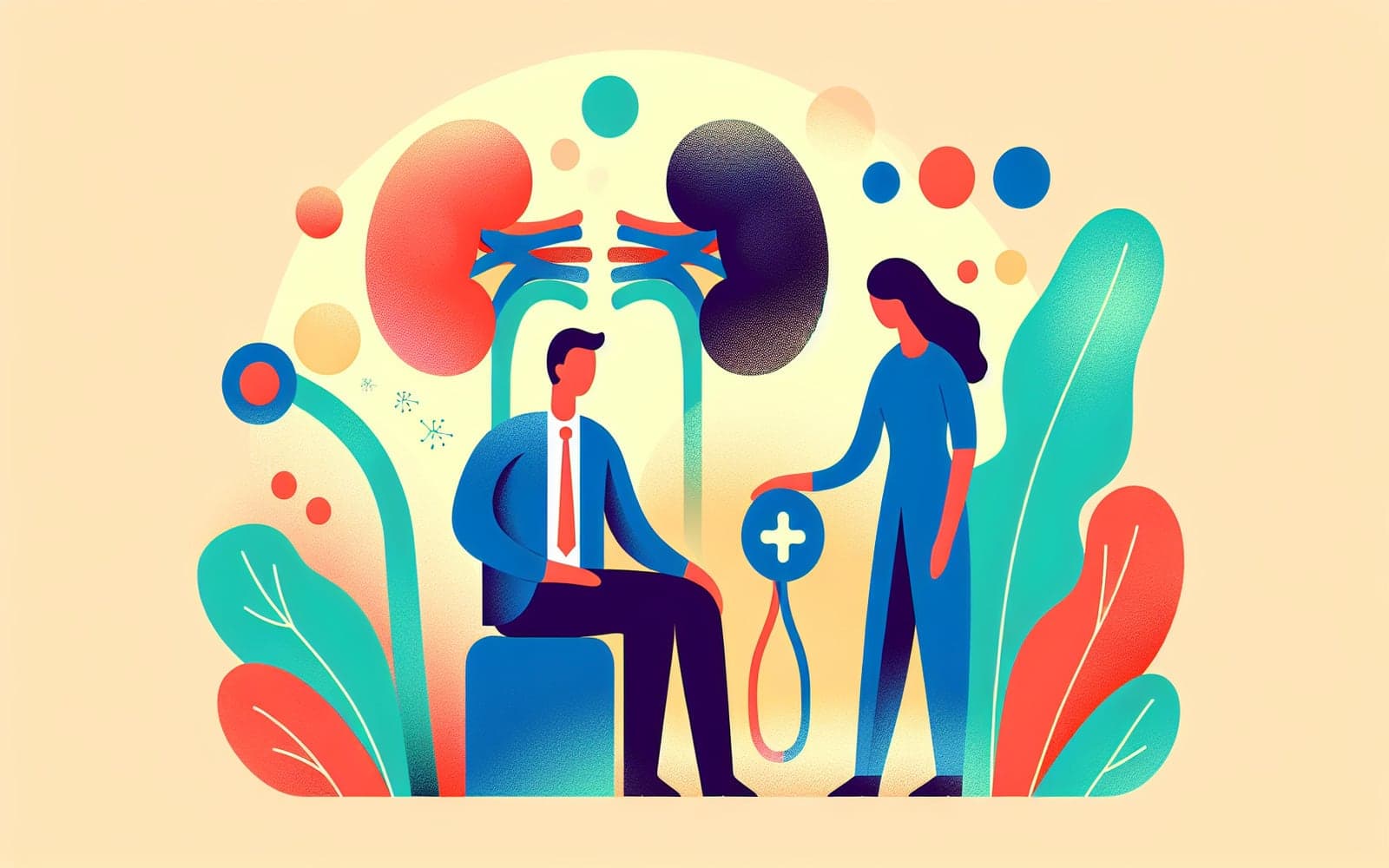What Causes Kidney Stones?
Published: Apr 20, 2024

Medically reviewed by Alan Lucks | MD, Alan Lucks MDPC Private Practice - New York on April 20th, 2024.
Kidney stones can be incredibly painful, but what causes them? Understanding the root causes can help in managing and preventing these hard mineral deposits.
Contents
Types of Kidney Stones
Kidney stones come in various types, with calcium stones being the most common, comprising 80% of cases. Other types include uric acid, struvite, and cystine stones. The presence of more than one type of crystal in a single stone is also possible. Each stone type has different causes and risk factors, making it important to identify the specific composition for effective management.
How Stones Form
Kidney stones form when minerals become concentrated in the urine, forming crystals that stick together. Calcium oxalate stones, for example, can form when calcium and oxalate are present in high concentrations. The process often begins in the kidney’s medullary interstitium, where crystals form and eventually erode through kidney structures. Understanding these mechanics helps in diagnosing and preventing stone formation.

Risk Factors and Triggers
Several factors can increase the risk of developing kidney stones. Dehydration is a major risk factor, as it leads to concentrated urine, which facilitates stone formation. Diets high in sodium and protein can also increase the risk, as well as certain medical conditions like obesity and digestive diseases. Identifying these risk factors can guide effective prevention strategies.
Frequently Asked Questions
The main types are calcium, uric acid, struvite, and cystine stones.
They form when minerals in urine crystallize and clump together.
Dehydration, high sodium and protein diets, and certain diseases increase risk.
Yes, a stone can contain multiple types of crystals.
Key Takeaways
Could understanding the causes of kidney stones help in preventing them?
Talk with Doctronic today to learn more about managing kidney stone risks.Related Articles
References
Evan AP, Lingeman JE, Coe FL, et al. J Clin Invest 2003; 111:607.
Kim SC, Coe FL, Tinmouth WW, et al. J Urol 2005; 173:117.
This article has been reviewed for accuracy by one of the licensed medical doctors working for Doctronic. Always discuss health information with your healthcare provider.

